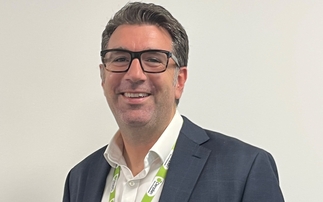At a time when premiums are soaring, combining private medical insurance (PMI) with health cash plans (HCPs) could offer a more cost-effective benefit for corporate and private clients, says Stephen Duff
Usually when healthcare benefits are discussed, the emphasis in put on private medical insurance (PMI) rather than on health cash plans (HCPs). As HCPs are now held by 7.4 million people and pay out £241.6m, they deserve to be considered more closely.
Increasingly, organisations and individuals are looking at HCPs as a useful complement to a traditional PMI scheme. PMI is a popular benefit, but good schemes can be costly. Employers are keen to offer their staff the best possible healthcare benefits, but PMI rates continue to increase year- on-year by around 6%. The cost of HCPs by contrast has remained fairly static. Adding on an HCP (which can cost as little as £13 a month) means the excess, the amount the patient pays towards the total cost of treatment, on the PMI scheme can be increased. A higher excess means a lower premium for the employer or individual taking out the scheme.
Without an HCP, however, this would mean an individual needing to use PMI for treatment would have to pay the increased excess out of their own pocket. This could amount to hundreds of pounds. The advantage of having an HCP is that the nightly hospital benefit paid by the cash plan provider could be used to pay for the excess. Nightly benefits on some schemes can amount to over £100 which can provide a good financial contribution to the cost of the excess.
A complementary plan
The HCP also provides benefits that PMI does not offer (see box). Taking just the dental care element as an example: an estimated 5 million people visit the dentist with toothache each year. The resulting absenteeism causes great problems for employers. Even if a patient is successful in finding an NHS dentist and having NHS treatment, they might still have to pay up to 80% of the cost. HCPs will contribute towards private treatment which may be quicker and easier to find.
Regular dental check-ups can also be essential in detecting other serious conditions such as mouth cancer. Also, while regular eye tests mean employees are less likely to be suffering from eye strain from working at computers, they can also detect diabetes and high blood pressure. Early detection increases the likelihood of successful treatment and means that key staff will be back at work more quickly.
That extra mile
While dental and optical benefits are the main reasons why people like HCPs, there are other attractions. They can also provide money to put towards complementary treatments such as osteopathy, homeopathy or seeing a chiropractor. Back pain is another prime cause of absenteeism, so employers should welcome any therapies that help to get employees back on their feet again.
HCP providers have responded to the new and evolving treatments entering the market. Good schemes will cover allergy testing and eye laser treatment, to give just two examples. These are sometimes not available on PMI schemes.
HCP providers may also provide information lines open 24 hours a day and 365 days a year, staffed by qualified professionals, providing medical information (for example, health problems, diet, disease and addictions), stress counselling, and legal advice. Such helplines can be very useful for members whose long working hours mean that it is not easy for them to get to a GP's practice during surgery hours.
Funding options
Another innovation in the market, making HCP schemes and PMI even more of an intelligent match, is the provision of an information line which provides advice on sourcing private medical treatment, offers members specially negotiated prices for treatment, as well as advising on funding options. Members can put the money they would otherwise be paying in premiums to a PMI scheme into an Isa or similar type of savings account. The money is then available if and when they need private treatment but can also be used for other purposes.
And if they do need treatment, members can use the trained professionals at the end of the telephone to negotiate with hospitals to obtain private treatment at a better price than they could negotiate themselves.
Whether or not the employer is funding the HCP (and more than half don't), there are advantages in offering them to staff.
As discussed above, HCPs work well with PMI and may help to keep rising premiums under control. Unlike PMI, HCPs are there to be used and there is no disincentive in the form of increasing premiums to using them. Whereas PMI tends to be viewed as a benefit for serious conditions involving operations or outpatient treatment, HCPs can be spent as required on treatments or medically related expenses.
In conclusion, HCPs and PMI together represent a valuable product, with more choice for the person covered, and cost savings for the employer or the individual.
Stephen Duff is sales and marketing director of the Hospital Saturday Fund
Cover notes
• PMI rates continue to increase year-on-year by around six per cent on average. HCPs, by contrast, have remained at a fairly static price.
• HCPs provide dental and optical benefits but they can also provide money to put towards complementary treatments such as osteopathy, chiropractic and homeopathy.
• Back pain is another prime cause of absenteeism, so employers should welcome any therapies that help to get employees back on their feet again.












